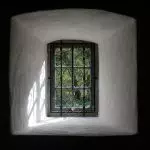Kava tea, derived from Piper kava, is an ancient herbal remedy known for its calming and anxiety-relieving properties without causing drowsiness. It contains kavalactones that interact with GABA receptors in the brain. Popularly used in Pacific Islands and Southeast Asia, it's gaining modern popularity as a natural alternative to bulk kratom or synthetic medications. Kava tea promotes relaxation and enhances resilience to stress, making it an excellent choice for holistic mental well-being support. However, it should be avoided by those with liver/kidney problems, pregnant/breastfeeding women, herb sensitivities, or anxiety disorders, and users should start with low doses.
“Kava tea, an ancient herbal remedy, has gained modern popularity as a natural way to unwind and reduce anxiety. This traditional drink, derived from the root of the Kava plant, offers a soothing experience with potential benefits for those seeking relaxation. Unlike bulk kratom, kava tea is renowned for its calming effects without inducing drowsiness.
In this comprehensive guide, we’ll explore the rich history, scientific insights, and various advantages of kava tea, providing a well-rounded perspective on why it’s becoming a go-to choice for natural anxiety relief.”
- Understanding Kava Tea: Origins and Historical Usage
- The Science Behind Kava's Relaxant Properties
- Kava vs. Bulk Kratom: A Comparison of Herbal Relaxants
- Benefits of Kava Tea for Anxiety Relief
- How to Incorporate Kava Tea into Your Daily Routine
- Potential Side Effects and Precautions
Understanding Kava Tea: Origins and Historical Usage

Kava tea, derived from the root of the Piper kava plant, has a rich history as an herbal remedy, particularly in the Pacific Islands where it’s been used for centuries. Historically, it played a significant role in traditional societies, not just as a social beverage but also for its calming and anxiety-relieving properties. Often referred to as “kava kava,” this herb has become a popular alternative to modern anxiety medications.
The term Kratom, sometimes used interchangeably with bulk kratom (a form of concentrated kava tea), originates from Southeast Asia, where the plant is cultivated and consumed extensively. It’s known for its unique ability to induce relaxation without causing drowsiness, making it a preferred choice for those seeking natural anxiety relief. This ancient herb continues to gain modern popularity due to its potential benefits in promoting mental well-being.
The Science Behind Kava's Relaxant Properties

Kava tea, derived from the root of the Pacific Island plant Piper kava, has been a traditional remedy for anxiety and stress for centuries. Its calming effects are attributed to several key compounds, offering an alternative option to those seeking relaxation without the use of pharmaceuticals or bulk kratom. Research suggests that kava’s primary bioactive constituents, kavalactones, interact with specific receptors in the brain, stimulating a response similar to that of gamma-aminobutyric acid (GABA), a common anxiety-relieving neurotransmitter.
Studies have shown that these compounds can help reduce symptoms of anxiety, promote relaxation, and improve overall well-being. Kava’s ability to bind to GABA receptors may explain its calming effects, providing a natural way to manage stress and anxiety without the side effects sometimes associated with synthetic medications. This ancient herbal remedy has gained modern popularity for its potential health benefits, offering a soothing experience that many find valuable in their wellness routines.
Kava vs. Bulk Kratom: A Comparison of Herbal Relaxants

Kava and bulk kratom are both popular herbal remedies known for their relaxation and anxiety-relieving properties, but they differ significantly in origin, composition, and effects. Kava, derived from the root of the Piper kava plant native to the Pacific islands, has a long history of use in traditional medicine for promoting calmness and reducing stress without causing drowsiness. On the other hand, bulk kratom refers to dried leaves from the Mitragyna speciosa tree, primarily grown in Southeast Asia, and is known for its diverse psychoactive compounds, including mitragynine and 7-hydroxymitragynine.
While both offer natural ways to unwind, kava generally provides a milder and more soothing experience, focusing on promoting relaxation without intense mental alterations. In contrast, bulk kratom offers a range of effects depending on the specific strain and dose, from energizing and mood-elevating to sedative and pain-relieving. The choice between them depends on individual preferences for relaxation versus stimulation and the desired depth of calming effect.
Benefits of Kava Tea for Anxiety Relief

Kava tea, derived from the roots of the Kava plant (Piper kava), has long been celebrated for its calming and soothing properties, making it a popular choice for those seeking natural anxiety relief. This ancient herbal remedy is known to effectively reduce symptoms of stress and promote a sense of tranquility without causing drowsiness, unlike some conventional anxiolytics. The active compounds in Kava tea, such as kavalactones, have been studied for their potential to interact with the brain’s neurotransmitter systems, particularly GABA receptors, which play a key role in regulating anxiety and mood.
Regular consumption of Kava tea can help individuals navigate stressful situations with increased resilience. Its ability to alleviate anxiety symptoms is often attributed to its unique interaction with the body’s stress response system. Unlike many modern remedies that mask symptoms, Kava tea works holistically to support mental well-being. Moreover, unlike bulk kratom or other synthetic alternatives, Kava has a long history of safe and effective use in traditional medicine practices, making it a preferred choice for those seeking natural supplements for anxiety relief.
How to Incorporate Kava Tea into Your Daily Routine

Incorporating kava tea into your daily routine is easier than you think. Start by sourcing high-quality, organic kava root powder, which you can often find in bulk kratom options available online or at specialty stores. The key is to choose a reputable supplier to ensure purity and potency. Once you have your kava, steeping the tea is simple: add one to two teaspoons of the powder to a cup of hot water, let it brew for 5-10 minutes, then strain. Adjust the amount according to your taste preferences; some enjoy a stronger flavor.
For maximum relaxation benefits, aim to drink kava tea consistently, perhaps after meals or before bedtime. Its calming effects can help reduce daily stress and promote better sleep quality. Plus, it’s an excellent alternative to sugary drinks or caffeine-laden beverages when you’re seeking a moment of tranquility. Experiment with different brewing methods—like using a French press for a fuller flavor—to find what works best for your palate.
Potential Side Effects and Precautions

While kava tea is generally considered safe for consumption, it’s important to be aware of potential side effects and take necessary precautions. Some users may experience mild digestive issues like nausea or stomach discomfort, especially when consuming large amounts or in bulk kratom forms. It can also interact with certain medications, so those taking any prescription drugs should consult a healthcare professional before incorporating kava into their routine. Additionally, individuals with liver or kidney problems should exercise caution, as these organs play a key role in metabolizing and filtering kava’s compounds.
Pregnancy and breastfeeding women are advised to avoid kava tea due to limited research on its effects on fetuses and infants. Those with a history of anxiety disorders or sensitivity to other herbs should also proceed with caution. Always start with a low dose and observe your body’s response, as individual reactions can vary significantly when it comes to herbal remedies.
Kava tea, with its rich history and emerging scientific support, offers a natural alternative for those seeking anxiety relief. When compared to bulk kratom, kava exhibits unique relaxing properties without the same level of controversy or potential side effects. By incorporating this herbal drink into your daily routine, you can experience the benefits of enhanced calmness and reduced stress. Remember, while kava tea shows promise, it’s essential to consult healthcare professionals for personalized advice and to stay informed about any potential precautions.






